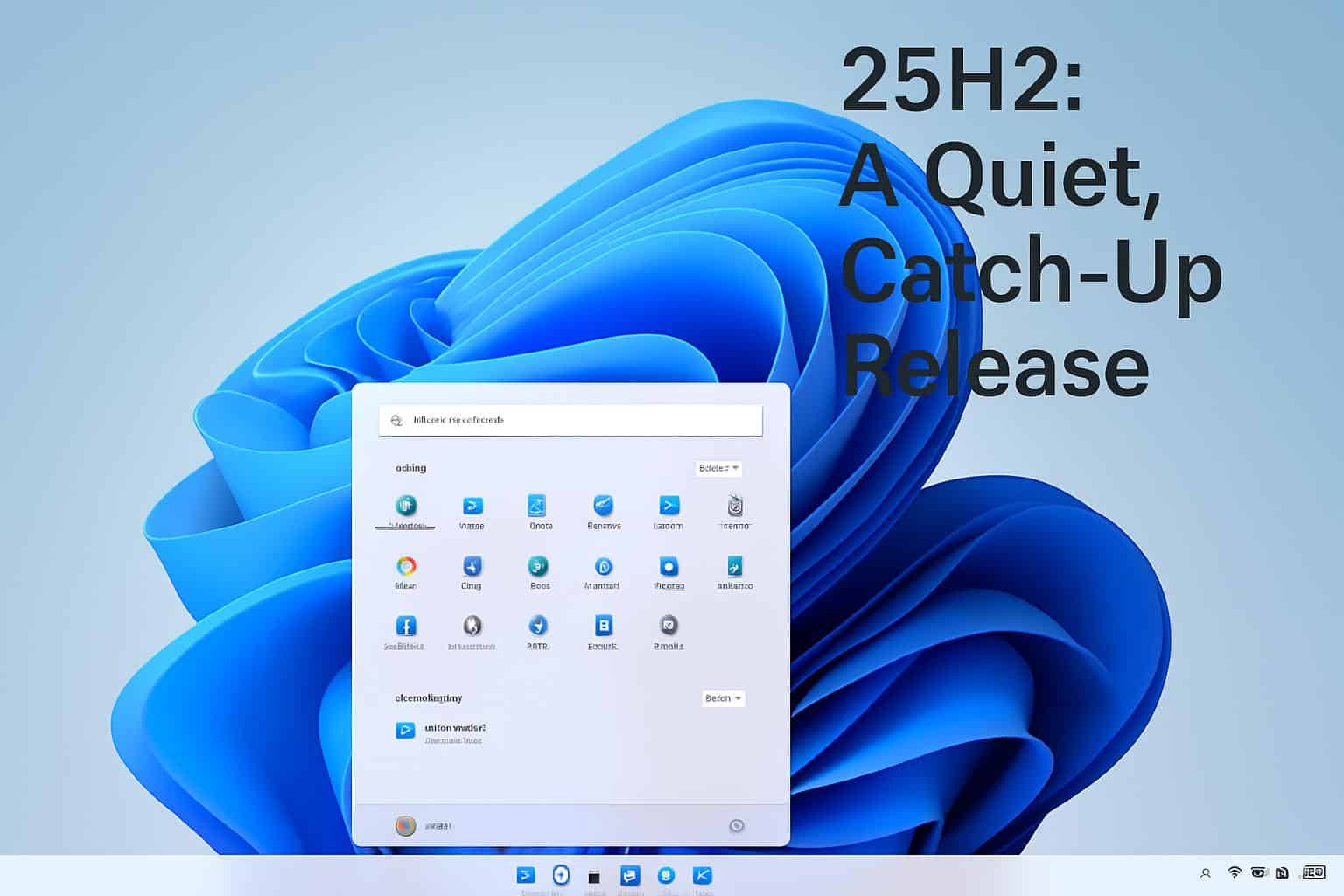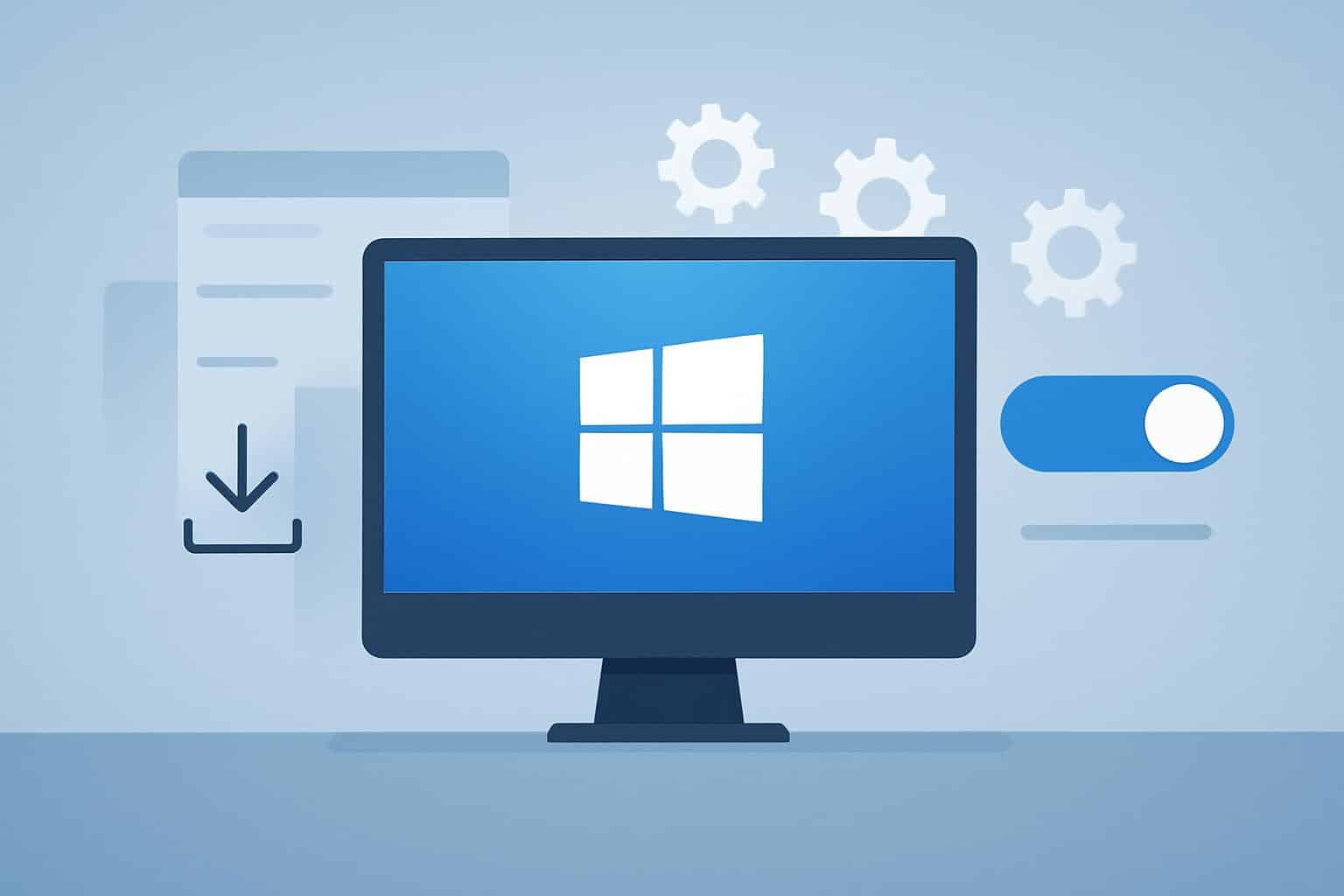Windows 11 version 25H2 arrives without bombshell features—and that’s by design. Instead of a reinvention, this annual update mainly flips the switch on capabilities that Microsoft has been quietly shipping over the past year via monthly updates. The result: a fast, low-drama install that extends support while keeping fleets stable.
Microsoft’s “enablement package” approach means most bits are already on your PC in a dormant state. Updating to 25H2 largely turns them on, avoiding heavyweight downloads and reducing the risk of compatibility breakage. It’s the latest expression of Microsoft’s “continuous innovation” model, where features roll out when ready rather than piling up for a single blockbuster release.

What’s Actually New for Most Users
If you didn’t opt in to receive features as soon as they’re available, 25H2 may surface several changes at once. The Start menu can display a Phone Link sidebar once your Android or iPhone is paired, offering quick access to messages, calls, and photos without opening a full app. It’s a small add, but genuinely handy if you live in messaging all day.
Lock screen widgets are more customizable, letting you add or reorganize tiles like Weather, Traffic, Watchlist, and Sports—including third‑party widgets that support smaller sizes. You’ll also find the time indicator back in the Notification Center panel above the calendar, plus the option to show seconds on the taskbar clock if precision matters.
Accessibility continues to get welcome attention. Narrator gains AI‑generated image descriptions and a new recap option that lets you review and copy the text of earlier interactions. Scan mode navigation is improved with keyboard shortcuts to jump to the start or end of long structures, trimming busywork for screen reader users.
Smaller quality‑of‑life refinements include an Edit button in the Windows share sheet to touch up images in Photos before you send them, and a Gamepad‑friendly touch keyboard layout that aligns keys vertically and adds controller accelerators (think X for backspace, Y for space) for sofa‑friendly typing.
Enablement Package, CFR, and Deployment
From a servicing perspective, 25H2 mirrors the strategy Microsoft refined during the Windows 10 era: ship code progressively, then enable it with a small activation download. In practice, the update installs quickly, often with a single reboot. The Windows Insider team validated this in the Release Preview channel before general rollout.
Microsoft’s controlled feature rollout (CFR) gates availability based on device readiness—drivers, hardware, and telemetry—so you may not see everything on day one. Business admins retain granular control via Windows Update for Business and management tools, allowing staged rings and pause windows that align with change‑management policies.
Security, Support Timeline, and Removals
Even if the features feel familiar, the upgrade matters for support. Microsoft’s servicing clock resets with each annual Windows release: Home and Pro get 24 months; Enterprise and Education receive 36 months, per Microsoft’s lifecycle documentation. That extended runway is often the decisive factor for IT teams planning patch cadences.

Security‑minded tweaks are subtle but meaningful. Microsoft has been testing a simplified black error screen in recovery scenarios and improving automated recovery paths through features designed to reduce manual triage. Meanwhile, legacy components that increase attack surface—such as PowerShell 2.0 and the deprecated WMIC command line—are removed, echoing guidance long advocated by enterprise security teams and national cybersecurity agencies.
Copilot and AI: Mostly Decoupled
AI features in Windows are increasingly delivered outside the OS release train. Copilot capabilities typically arrive via the Microsoft Store or cloud services, which means 25H2 itself doesn’t radically change the experience. One exception you may notice is a system‑level press‑to‑talk gesture: holding Alt+Space engages Copilot for voice input, and an optional “Hey Copilot” wake phrase can be enabled when your PC is unlocked.
Newer Copilot+ PC features—like timeline search and on‑device AI experiences—remain hardware‑gated to devices with NPUs that meet Microsoft’s baseline. That split matters: software updates are universal, but the richest AI features are tied to silicon. Microsoft has been explicit about this direction in its Windows blog and partner briefings.
Why a Low‑Drama Windows Release Matters
A measured release eases adoption friction in mixed environments where Windows 10 and Windows 11 still coexist. Third‑party telemetry firms such as StatCounter have shown that shifts in desktop OS share tend to be gradual, not overnight swings, and analyst surveys from Gartner and IDC consistently note that IT leaders prefer predictable, low‑impact updates over flashy feature dumps.
For end users, that pragmatism translates into fewer regression headaches and less downtime. For organizations, it means fewer emergency rollbacks and a smoother path to meeting compliance windows and vulnerability remediation SLAs.
Should You Install 25H2?
If you’ve been taking monthly updates with the “get the latest” option enabled, 25H2 won’t feel transformative—and that’s okay. Install it to extend support, consolidate the year’s improvements, and capture under‑the‑hood hardening. Before upgrading, confirm your backup is current; Windows Backup can also pair a new PC with your old one to migrate files and many settings with less hassle.
Bottom line: Windows 11 25H2 is a maintenance‑minded catch‑up that favors reliability over novelty. It’s not a headline act, but it’s exactly the kind of release most PCs—and most admins—quietly appreciate.

